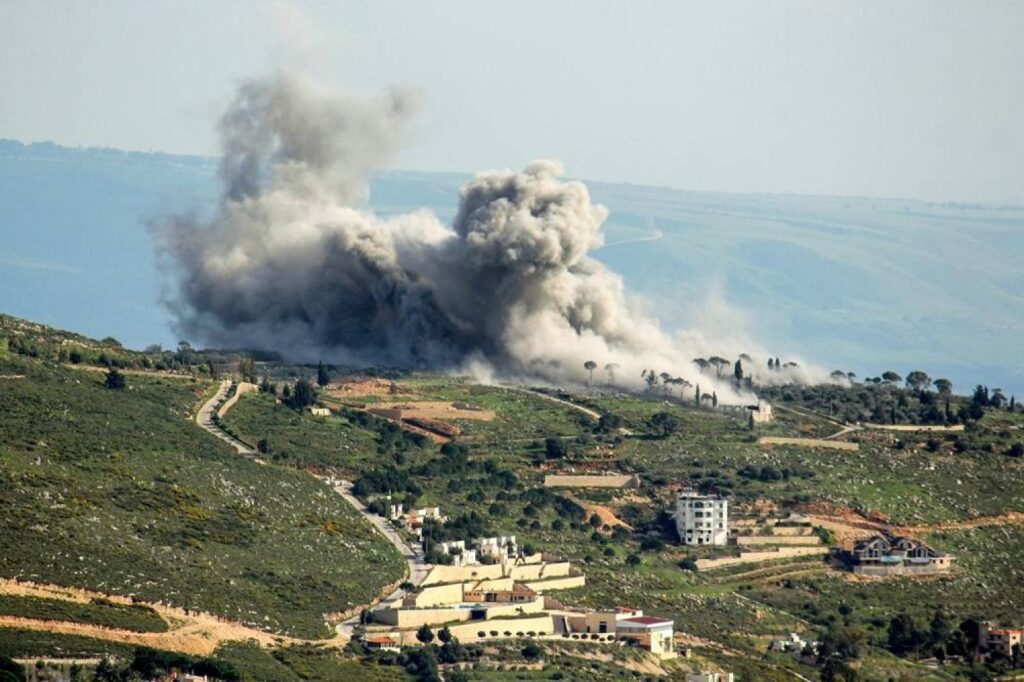On Tuesday, two Israeli strikes killed five civilians in South Lebanon, including three children, all of whom are from Syrian descent. The two raids took place on the Kfar Tebnit – Khardali road and the town of Umm al-Tut, respectively, and brought the civilian death toll to eight in the last three days alone.
On Thursday July 18, Israeli strikes targeted the Bekaa region, killing a leader in the Jama’a Islamiyya group, Abu Mahmud Muhammad Jabara, an official of the Al-Fajr Forces in the military wing of the Jama’a Islamiyya, which mourned Jabara. The Kassam Brigades also mourned Jabara, describing him as one of its officials.
In the south, an Israeli drone targeted a vehicle in the town of Jibal al-Botm, killing a member of Hezbollah, Hussein Ali Muhanna. Israeli forces also conducted a number of raids on southern towns such as Zibqin and the Western Bekaa.
Hezbollah responded by targeting a number of intelligence outposts. The group’s Secretary General, Hassan Nasrallah, announced in a televised speech that Israel’s persistence in targeting civilians will push Hezbollah to target new Israeli locations that were not previously targeted.
Ceasefire Negotiations Continue in the Background
According to Axios, a secret meeting took place in Tel Aviv between the Palestinian Authority, Israel and the United States which included Head of Palestinian Intelligence Majed Farah, Fatah Secretary General Minister Hussein al-Sheikh, Chief of Israeli Security Agency Shin Bet Ronen Bar and US President Joe Biden’s Middle East Adviser Brett McGurk.
It is the first time such a meeting was held according to Axios, but it reportedly did not feature any agreements or moves forward in that regard. It is also viewed as part of Israel’s attempts to find local groups to rely on in Gaza that are not affiliated with Hamas.
For Lebanon, a ceasefire in Gaza would have important ramifications. Hezbollah Secretary General Hassan Nasrallah reiterated that a ceasefire in Gaza would imply a ceasefire in Lebanon, as the opening of the Lebanese front was only a step in support of Palestinian resistance.
However, as the Lebanese front continues expanding, Israeli authorities have developed a new set of considerations, which could include concessions from Hezbollah such as the retreat of the group beyond a certain line.
Matters remain at an impasse, however, as all attempts to reach a ceasefire have hitherto failed miserably.
Despite pressures by a number of international actors and governments, including those previously allied to Israel, Israeli forces continue their onslaught on Gaza, Lebanon, and other countries in the region, killing tens if not hundreds of thousands of civilians, a large portion of whom are children.
